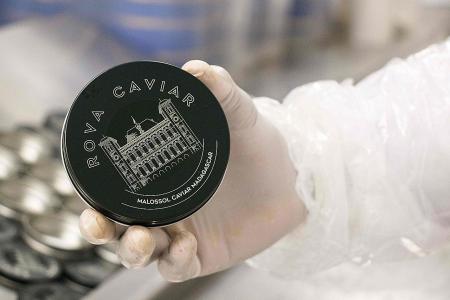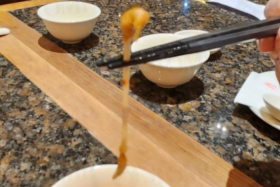Caviar the new hope for Madagascar’s economy
MANTASOA, MADAGASCAR Madagascar, renowned for its unique wildlife and vanilla production, has a new claim to fame - it is Africa's first and only source of caviar.
The business is an unlikely project in an island nation beset by grinding poverty, but its owners are determined that luxury foods can play a part in improving Madagascar's economy.
"A lot of people laughed at us," said Ms Delphyne Dabezies, the head of Rova Caviar, admitting that the enterprise was a big gamble.
"But we took the time to prove that this is serious. Madagascar caviar is now the only caviar produced in Africa and the Indian Ocean."
The island off the coast of Mozambique is still only a minor player in terms of global production, which is dominated by China, Italy and France - though producers in the Caspian Sea still boast the most prized caviar, from Beluga sturgeon.
Last year, Mozambique produced 1,000kg of caviar in a world market of about 340,000kg a year.
The plan is the brainchild of Ms Dabezies, her husband Christophe and their partner Alexandre Guerrier, all French entrepreneurs based in Madagascar.
The sturgeon that produce unfertilised caviar roe are kept in Lake Mantasoa, perched at an altitude of 1,400m east of the capital Antananarivo.
The sturgeon are imported from Russia in the form of fertilised eggs, which hatch in a special nursery facility in Mantasoa.
When they reach 7g, they are moved to freshwater ponds, and then into large cages in the lake when they weigh 500g. At 1.5kg, the males are killed and only the females are kept on until their eggs are ready.
The process demands patience and skill. The first imported eggs arrived in Mantasoa in 2013, and the first grams of caviar did not go on sale until June 26, 2017, Madagascar's Independence Day.
The quality of the harvest depends on the dexterity of one man, 23-year-old Gaston Soavan'i Thomas. Knife in hand, Mr Thomas has no margin for error as he extracts eggs from the entrails of each sturgeon.
He said: "At first, I was afraid to destroy or contaminate the eggs, but now everything comes automatically."
The eggs are kept in a refrigerated room at 0 deg C.
Expert taster Georges Heriniaina Andrianjatovo taps each box with a small hammer to detect any air bubbles, which are removed as soon as possible. Colour, taste and smell are all important.
"A good caviar rolls in the mouth and exudes an odour of fresh butter," he said.
Once it is judged up to standard, the precious output is sold to high-end shops and restaurants on the island and to its neighbours of Mauritius, Seychelles and Reunion.
Its price is a relative bargain - €100 (S$153) per 100g - far cheaper than in Europe. According to Guinness World Records, a kilogram of the costliest caviar from albino sturgeon off the coast of Iran fetches over US$25,000 (S$33,905). - AFP
Get The New Paper on your phone with the free TNP app. Download from the Apple App Store or Google Play Store now



